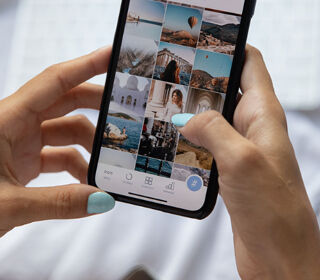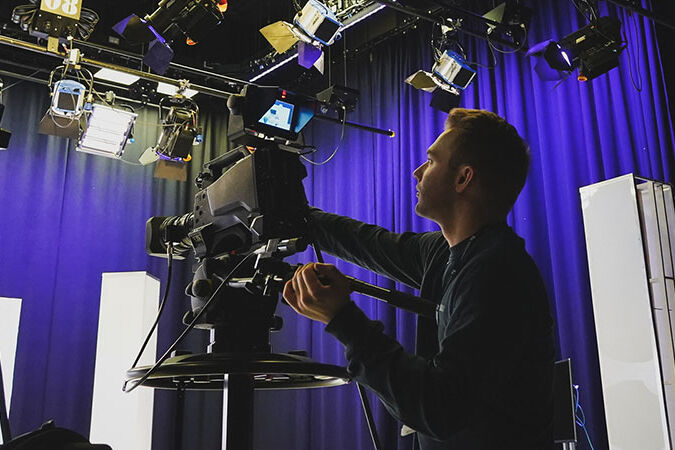
Blog

Do you trust influencers on social media? Do you find them relatable or even aspire to become one yourself? Read on to find out how the culture of influencers is changing us all, as well as the pros and cons of universities integrating influencers into their marketing campaigns.
Society is continuously evolving and over the years it has brought along the rise of social media influencers. For brands, the incorporation of social media influencers in their digital marketing campaigns has become a fantastic way to increase their follower count, consumer base and boost their sales. These influencers have altered a change in our way of purchasing, which has given a great return on investment to many marketers, but how can universities use influencers to their advantage?
What are social media influencers?
Social media influencers are individuals who have built large and active audiences within online platforms like Instagram, TikTok and Twitter. An influencer would have developed a trustworthy online presence and can share their opinions on a product or brand which will encourage their followers to make a purchase or drive interaction on their page. Influencers can practically be found in every industry from book reviewing to fashion blogging and their knowledge and understanding of their niche places them in a position of power and authority within the digital realm.
They have always been around but over the recent years, the term influencer has been legally defined and has become a profitable industry as well as a job option. Previously, celebrities would have been considered to be influencers as their status and authority would be able to persuade their fans to make purchases. However, it has now become possible for the everyday individual with the accessibility of technology.
Brand collaborations and campaigns
More than three billion people have been linked to a social media network due to the rising exposure to technology across the world. The process of becoming an influencer has also become more accessible due to the consistent production of new applications such as TikTok. The power of an influencer in being able to impact consumer purchases has not gone unnoticed by brands, as they have carved out specific budgets just for influencer marketing collaborations and campaigns. Well-known consumer brands such as Pretty Little Thing, Adidas, Morphe and even Vue Cinema have all incorporated influencer marketing into their campaigns, and as a result, they have seen their online audience engagement, sales and reputation increase. Smaller businesses have also started to collaborate with social media influencers in order to develop their own social media accounts by gifting influencers with a free service or product in exchange for a review, which would promote exposure to a new audience.
Influencer marketing
Consistent study in this field has found that collaborating with influencers that have smaller audiences, also known as micro-influencers (influencers with less than 10,000 followers), are more effective for niche companies with a specific target demographic as their audience is more likely to purchase their product just from hearing a personal review. When using their power positively, influencers can be great role models for individuals looking for guidance and information. The development of new apps and technology means that influencer marketing is still evolving and will be around for the unforeseeable future.
How can this be beneficial for universities?
Since the majority of prospective and current students are part of Generation Z, the inclusion of social media influencers in their marketing campaigns appears increasingly attractive to universities in many ways. Universities are brands and partnering with well-known and popular influencers can be a great way to improve their reputation and spread their brand awareness online. Traditional communication channels that have been used in the past to attract prospective and current students may not be as effective in the present day. Universities need to use different approaches in order to effectively market and engage with Gen Z. Universities that incorporate influencer marketing could possibly:
- Earn more honest reviews about the University
Student influencers who share self-made content about their university experiences by vlogging a week of their university life or writing a blog post about their course modules make it easy for their university to be portrayed in a positive light. It also offers their viewers a chance to see what university life would be like if they are considering applying there, and they get to see it from a current student's perspective.
- Positive experiences get shared by students
Universities have a wide variety of ambassadors to pick from, with thousands of students sharing their campus experiences online. Student influencers also have the opportunity to create enjoyable, funny and real content and share this with a larger audience that the University may not have previously reached. This exposure could enhance the University's reputation and alternatively become a choice for prospective students who may not have previously considered it.
Media Courses
Find out more about our courses




